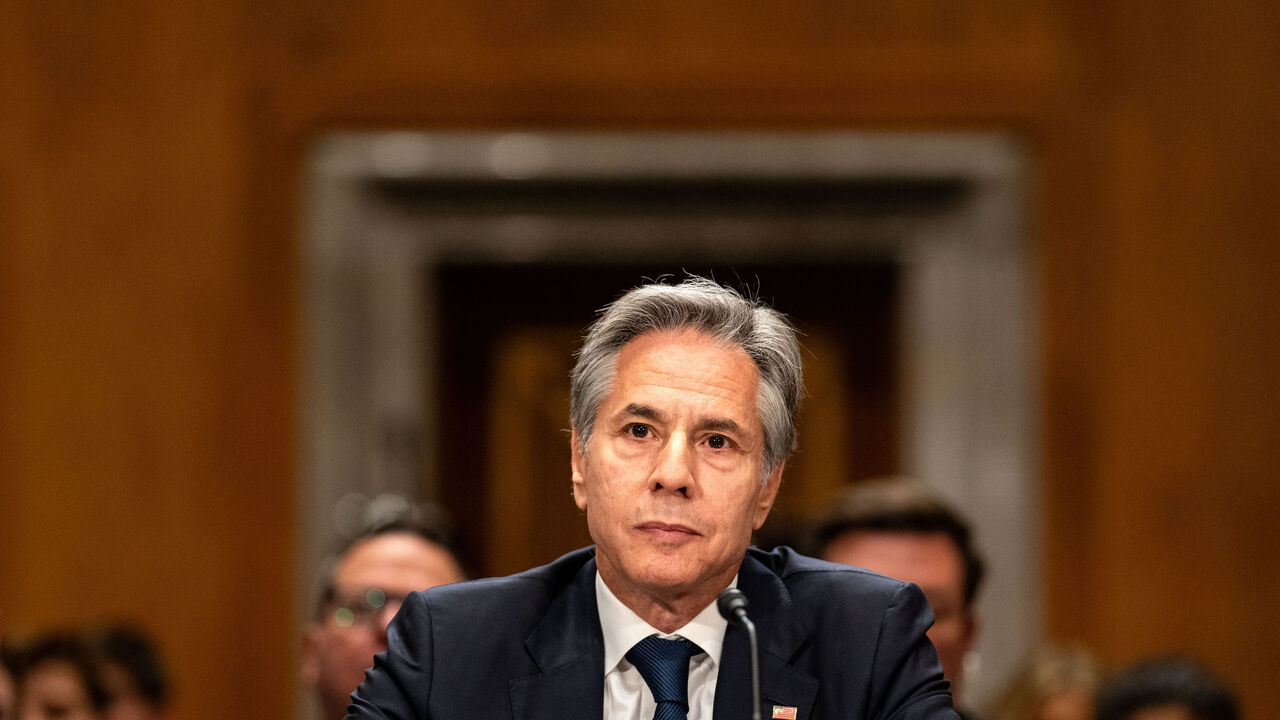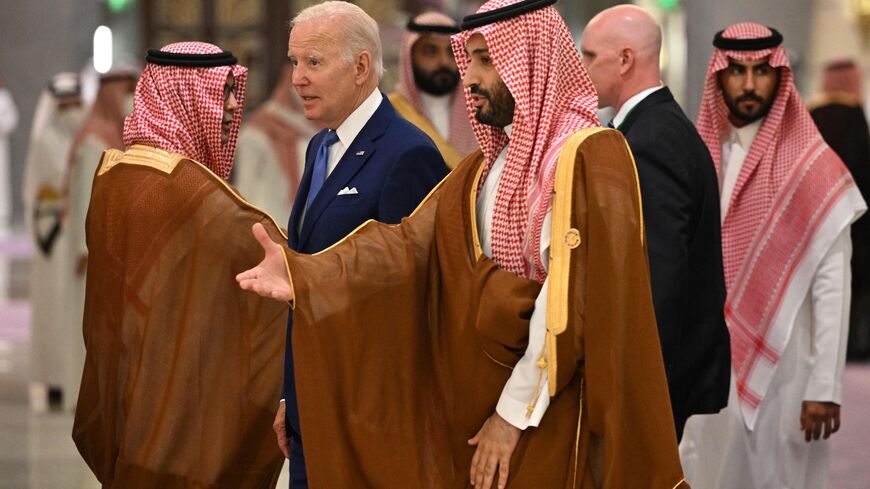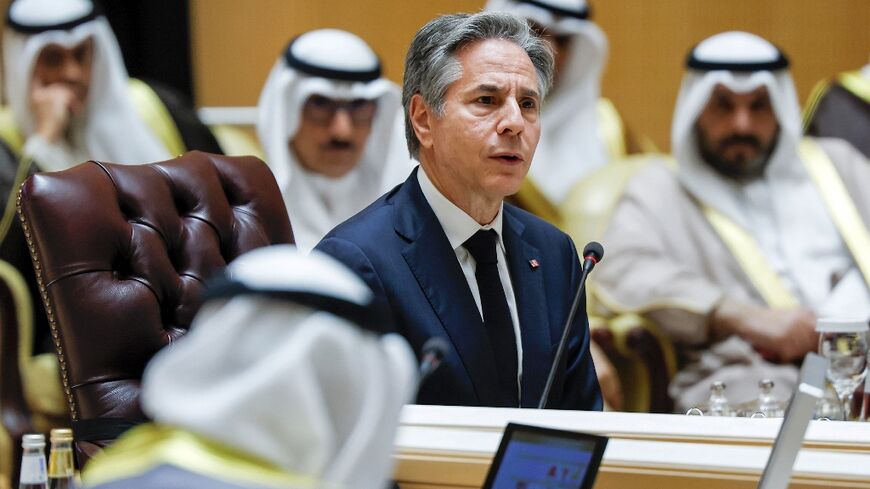Blinken: Israel 'may not be willing' to accept Palestinian statehood for Saudi normalization
Blinken's comments came as Israeli President Isaac Herzog has revealed that a deal with Saudi Arabia for normalization of ties is on the table.

US Secretary of State Antony Blinken said on Tuesday that Israel may not be willing to accept Palestinian statehood and a state of calm in Gaza in return for normalization with Saudi Arabia.
Blinken confirmed in testimony to Congress that the United States is seeking a bilateral agreement with Riyadh that involves normalization with Israel. "We have sought to move forward in negotiating the bilateral US-Saudi aspects of a normalization agreement between Saudi Arabia and Israel. But even if we were to conclude those agreements — and I believe we actually can conclude them relatively quickly, given all the work that's been done — they could not go forward and the overall package could not go forward, absent other things that have to happen for normalization to proceed," the top US diplomat said.
Blinken added that Israel is unlikely to agree to Saudi Arabia's demands on Palestinian statehood. "The Saudis have been very clear: That would require calm in Gaza, and it will require a credible pathway to a Palestinian state. And it may well be, as you said, that in this moment, Israel is not able or willing to proceed down that pathway," he said.
His comments came shortly after Israeli President Isaac Herzog revealed Tuesday that a deal for the normalization of ties with Saudi Arabia is on the table, asserting that such an accomplishment would be a "historic game-changer."
Addressing the Israel Democracy Institute's Eli Hurvitz Conference, Herzog said, "Two days ago, I met with the US national security adviser Jake Sullivan and heard from him what was officially announced yesterday — that there is an option for normalization with Saudi Arabia." Herzog added, "This is a move that could bring about tremendous change, a historic game-changer that constitutes a victory over the empire of evil."
The Israeli leader expressed hope that this possibility was indeed being seriously considered by Israeli leadership, especially against the backdrop of the Oct. 7 assault by Hamas, stressing, "Our struggle, in the end, is not only a fight against Hamas. It is a wider, strategic, global and historic battle, and we must do everything to integrate into the grand vision of normalization."
Sullivan traveled to Israel Sunday from Saudi Arabia, where he had met with Crown Prince Mohammed bin Salman. A readout from the White House said the meetings with Salman "focused on a comprehensive vision for an integrated Middle East region" and that Sullivan updated Prime Minister Benjamin Netanyahu and his team and his meetings in Dammam about "the potential that may now be available for Israel, as well as the Palestinian people."
The readout also noted that Sullivan was briefed by his Israeli interlocutors on the ongoing military operation in Rafah. Sullivan proposed concrete measures to ensure more humanitarian aid enters the Strip and "reaffirmed the need for Israel to connect its military operation to a political strategy that can ensure the last defeat of Hamas, the release of all the hostages and a better future for Gaza."
Sullivan’s visits to Saudi Arabia and Israel are understood to be aimed at promoting an agreement that would see normalization between the two countries as part of a trilateral mega deal that would include a defense pact between Riyadh and Washington as well as advancement toward Palestinian statehood.
Reports earlier this month suggested that absent Israeli willingness to halt the operation in Rafah and to advance Palestinian statehood, Washington and Riyadh could go ahead with a defense pact without the normalization component. A report by Reuters May 2 read that the Biden administration and the Saudi Arabia government are finalizing an agreement for American security guarantees and civilian nuclear assistance even as a normalization deal remains elusive. Such an agreement, if it comes in the form of a treaty, would need approval from Congress.
The Washington Post reported Monday that the parameters of an eventual conclusion to the Gaza war have become more evident since Sullivan’s trip to Saudi Arabia and Israel. Columnist David Ignatius noted that after entering eastern Rafah in a limited operation, Israeli leaders have reached a consensus about a final assault on Hamas’ remaining battalions. Instead of the large-scale operation that Israel contemplated several weeks ago, the government and the military leadership foresee a more limited assault, one that might be accepted or tolerated by the Biden administration.
Ignatius also wrote that senior Israeli security officials are pushing for a strategy for the day after war "that will include a Palestinian security force drawn in part from the Palestinian Authority’s administrative payroll in Gaza." He went on, "This Palestinian force will be overseen by a governing council of Palestinian notables backed by moderate Arab states such as Egypt, Jordan, the United Arab Emirates and Saudi Arabia."
Prime Minister Benjamin Netanyahu has stressed on several occasions that he will not accept a framework that would include the involvement of the Palestinian Authority.
Referring to Sullivan’s meetings with Crown Prince Salman, Ignatius wrote, "The Saudi role would be crucial to any final resolution of the Gaza conflict."








